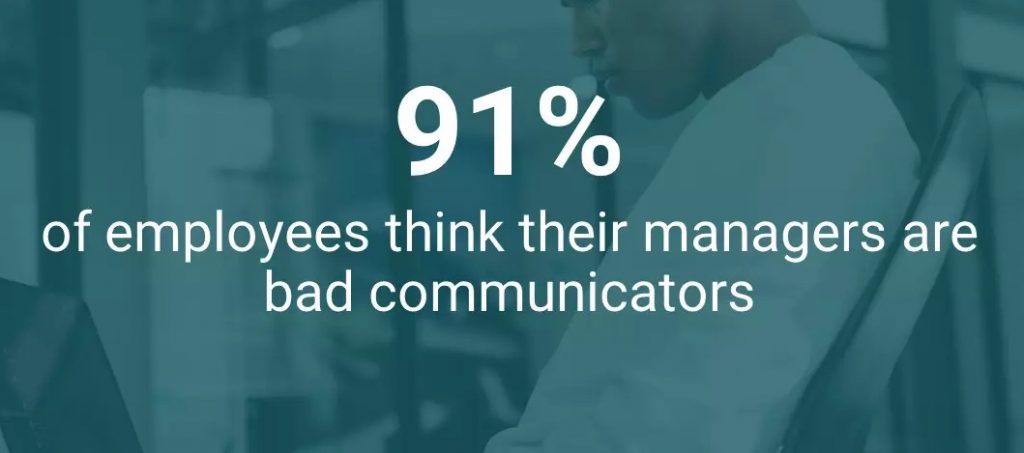Effective communication is the lifeblood of any successful organization, and this holds particularly true for startups and small to medium-sized businesses (SMBs). In the fast-paced and ever-changing landscape of these dynamic ventures, the ability to communicate effectively is paramount for driving growth, inspiring teams, and navigating the challenges that come with scaling. Recently, Factoryal, a Boutique Management consulting firm, hosted a webinar titled “Secret Ingredients for Impactful Leadership Communication,” shedding light on the crucial aspects of communication for managers and leaders. In this article, we will delve deeper into this topic, exploring the key ingredients for impactful communication, real-life global examples, and how effective communication plays a vital role in the journey of a manager to a leader.
So, grab a cup of coffee, sit back, and get ready to uncover the secrets that will elevate your leadership game to new heights.
The Power of Impactful Communication
Effective communication is the lifeblood of successful leadership. It’s the glue that holds teams together, propels innovation, and fosters a culture of collaboration and trust. In today’s fast-paced professional landscape, where every interaction counts, mastering impactful communication is non-negotiable.
Ingredient #1: Authenticity
The Key to Genuine Connection: In a world of pretense and corporate jargon, authenticity is like a breath of fresh air. Authentic leaders connect with their teams on a deeper level, inspiring loyalty and commitment. By being true to yourself and fostering an open and transparent environment, you lay the foundation for effective communication. Share your vision, values, and aspirations with your team, and watch as they become invested in the collective journey towards success.

Imagine you’re a manager in a tech startup, and you need to address a setback in a critical project. Instead of sugarcoating the situation or blaming others, you take a transparent and authentic approach. You gather the team, acknowledge the challenges, and express your confidence in their abilities to overcome the obstacles. By being authentic, you create an environment where honesty and accountability thrive, fostering a culture of growth and resilience.
Or think, you’re the leader of a small enterprise. During a team meeting, you share your personal journey of overcoming creative challenges and how it shaped your passion for design. By opening up and being vulnerable, you create an authentic connection with your team members, encouraging them to share their own experiences and ideas. This fosters a sense of belonging and inspires creativity and innovation.
Take a cue from Satya Nadella, CEO of Microsoft, who is a prime example of an authentic leader and has transformed the company’s culture by embracing authenticity and encouraging open dialogue. He advocates for vulnerability and open communication within his organization. By sharing personal stories and lessons learned, Nadella connects with his employees on a deeper level, inspiring trust and fostering a culture of innovation. His approach has revitalized the organization, fostering a sense of trust and empowerment among employees.
Ingredient #2: Active Listening
Hear to Inspire: Effective communication is a two-way street. It involves not only conveying your message but also actively listening to others. While sharing your ideas and vision is important, listening to your team members is equally vital. Actively listening demonstrates respect, builds trust, and unlocks valuable insights. Embrace the art of listening with intent, ask meaningful questions, and encourage your team to express their thoughts and concerns openly. Active listening is a powerful tool that fosters understanding, builds relationships, and promotes collaboration.

Imagine you’re a leader in a social media startup, and you’re conducting a brainstorming session with your team. Instead of dominating the conversation or dismissing ideas, you actively listen to each team member, valuing their input and providing constructive feedback. By practicing active listening, you create an inclusive environment where diverse perspectives are heard and respected.
Or that you’re leading a marketing team, and one of your team members shares an innovative idea during a brainstorming session. Instead of brushing it off, you actively listen, engage in a discussion, and acknowledge the merits of their suggestion. This empowers your team member and encourages them to contribute further, fostering a culture of collaboration and creativity.
Richard Branson, founder of the Virgin Group, once said, “I have always believed that the way you treat your employees is the way they will treat your customers.” By actively listening to his team, Branson has cultivated a culture of innovation and customer-centricity, propelling Virgin Group to success.
Ingredient #3: Clarity
Speak the Language of Simplicity: In the fast-paced hyper social media 24X7 world we live in, information overload is a real struggle. To cut through the noise and make an impact, leaders must communicate with clarity and simplicity. Avoid using convoluted jargon and complex terminology. Instead, break down your messages into bite-sized, easily digestible pieces. Your team will appreciate your straightforwardness and be able to act upon your directives more effectively.
Let’s assume, you’re leading the marketing division in an e-commerce startup, and you need to convey the strategic objectives for an upcoming campaign. Instead of using jargon-filled statements or vague descriptions, you communicate a clear and concise vision that aligns with the company’s goals. By providing clarity, you empower your team to execute with precision and focus, resulting in a successful campaign.
Or that you’re heading a complex product development team, and you need to communicate a complex technical concept to your non-technical stakeholders. Instead of bombarding them with intricate details, you break it down into simple, relatable terms that they can grasp easily. By doing so, you ensure alignment, eliminate confusion, and inspire confidence in your team’s abilities.
Indra Nooyi, former CEO of PepsiCo, mastered the art of clarity in her communication. She famously said, “Leadership is hard to define and good leadership even harder. But if you can get people to follow you to the ends of the earth, you are a great leader.” Nooyi’s simple yet powerful communication style inspired her team to achieve remarkable results. Whether it’s addressing shareholders or speaking to her team, Nooyi’s communication style is marked by simplicity, making her messages accessible to a wide range of audiences.
Ingredient #4: Emotional Intelligence
The Human Connection: Effective communication goes beyond words. It’s about understanding and connecting with the emotions of your team members. Emotional intelligence allows you to navigate challenging situations, resolve conflicts, and provide support when needed. By showing empathy and acknowledging the feelings of your team, you create a safe and inclusive environment that fosters open communication and encourages collaboration.
Empathy as a Superpower: In the realm of impactful communication, emotional intelligence takes center stage. Empathy, understanding, and recognizing the emotions of others can transform your leadership style and create a supportive and inclusive environment. By tapping into your emotional intelligence, you foster trust, strengthen relationships, and inspire your team to reach their full potential.
What if one of your team members is facing personal challenges that affect their performance? Instead of solely focusing on the tasks at hand, you approach the situation with empathy and compassion. You have an open and supportive conversation, offering resources and flexibility to help your team member overcome their difficulties. By leading with empathy, you foster a culture of support, well-being, and loyalty within your team.
Or In a real life situation, one of your team members is struggling with a difficult client. Instead of immediately jumping to conclusions or reprimanding them, you take a moment to understand their perspective. You offer support, provide guidance, and help them navigate the situation effectively. This empathy not only resolves the immediate issue but also strengthens the bond between you and your team member.
Tim Cook, CEO of Apple, is known for his empathetic leadership style. He actively listens to the concerns and ideas of his employees, fosters a diverse and inclusive work culture, and ensures that every voice is heard. Cook’s empathetic approach creates a sense of belonging and motivates his team to go above and beyond.
Sundar Pichai, CEO of Google and Alphabet Inc., is known for his emotionally intelligent leadership style. He creates a sense of psychological safety within his teams, empowering individuals to express their ideas freely and fostering a culture of innovation.
Speak the Language of Simplicity: In the fast-paced hyper social media 24X7 world we live in, information overload is a real struggle. To cut through the noise and make an impact, leaders must communicate with clarity and simplicity. Avoid using convoluted jargon and complex terminology. Instead, break down your messages into bite-sized, easily digestible pieces. Your team will appreciate your straightforwardness and be able to act upon your directives more effectively.
Let’s assume, you’re leading the marketing division in an e-commerce startup, and you need to convey the strategic objectives for an upcoming campaign. Instead of using jargon-filled statements or vague descriptions, you communicate a clear and concise vision that aligns with the company’s goals. By providing clarity, you empower your team to execute with precision and focus, resulting in a successful campaign.
Or that you’re heading a complex product development team, and you need to communicate a complex technical concept to your non-technical stakeholders. Instead of bombarding them with intricate details, you break it down into simple, relatable terms that they can grasp easily. By doing so, you ensure alignment, eliminate confusion, and inspire confidence in your team’s abilities.
Indra Nooyi, former CEO of PepsiCo, mastered the art of clarity in her communication. She famously said, “Leadership is hard to define and good leadership even harder. But if you can get people to follow you to the ends of the earth, you are a great leader.” Nooyi’s simple yet powerful communication style inspired her team to achieve remarkable results. Whether it’s addressing shareholders or speaking to her team, Nooyi’s communication style is marked by simplicity, making her messages accessible to a wide range of audiences.
Ingredient #5: Adaptability
Flexibility in a Changing World: In today’s rapidly evolving business landscape, adaptability is a vital communication skill. As a leader in a start-up or even a small-medium business, you must be prepared to navigate uncertainty, pivot strategies, and communicate change effectively. Be transparent about the reasons behind changes, address concerns, and provide support to your team as they navigate new challenges. Your ability to adapt and communicate change will inspire confidence and resilience among your team members.

Embrace flexibility, keep your team informed, address concerns, and provide support as you collectively navigate new challenges. Your ability to adapt and communicate effectively during times of change will inspire resilience and foster a culture of growth.
Now visualize you’re the founder of a tech startup, and need to communicate a significant shift in the company’s product roadmap. Instead of avoiding the conversation or delivering the news abruptly, you take the time to prepare a clear and compelling message. You address the reasons behind the change, highlight the benefits, and provide a roadmap for how the team will adapt and succeed. This proactive communication approach eases anxiety and creates a sense of purpose among your team members.
During the COVID-19 pandemic, Anand Mahindra, Chairman of Mahindra Group, demonstrated remarkable adaptability and effective communication. He swiftly responded to the crisis, prioritized employee well-being, and communicated transparently about the measures taken by the company. Mahindra’s clear and empathetic communication instilled confidence and ensured that employees felt supported during challenging times.
Jeff Bezos, founder of Amazon, is known for his relentless focus on customer needs and his willingness to adapt. He understands the importance of staying nimble and making strategic shifts to meet changing market demands. Bezos’s ability to communicate these changes effectively has played a pivotal role in Amazon’s success and its evolution into a global powerhouse.
When faced with the COVID-19 pandemic, Satya Nadella once again demonstrated his adaptability and effective communication skills. He swiftly transitioned Microsoft’s workforce to remote work, prioritized employee well-being, and kept the lines of communication open to ensure a smooth transition.
In the Indian landscape, effective communication takes on an added dimension due to the rich diversity of cultures, languages, and backgrounds. Leaders must navigate this cultural tapestry with sensitivity, embracing inclusivity and ensuring that communication is accessible to all. By recognizing and celebrating the unique perspectives of your team members, you create an environment where diverse voices are heard, fostering innovation and growth. By embracing inclusive communication practices, acknowledging cultural nuances, and ensuring accessibility for all, you foster an environment where diverse voices are heard, ideas flourish, and innovation thrives. Additionally, effective communication helps navigate the unique challenges and dynamics of the Indian market, such as diverse languages, hierarchical structures, and varying levels of digital literacy.
What Seasoned Leaders Can Do: Seasoned leaders have a unique opportunity to mentor and guide the next generation of managers. By sharing their experiences, insights, and communication wisdom, they can shape the leaders of tomorrow. Encourage seasoned leaders to conduct workshops, share best practices, and provide mentorship opportunities to help emerging leaders refine their communication skills. Additionally, veteran leaders have a wealth of experience and wisdom to offer. They can lead by example and create a positive impact on the communication landscape within their organizations. Few giveaways:
- Mentorship: Share your knowledge and experiences with emerging leaders, guiding them in their communication journey.
- Training and Development: Invest in communication training programs to enhance the skills of your team members and empower them to become effective communicators.
- Open Dialogue: Encourage open and honest conversations within your organization, where ideas can be freely shared and concerns can be addressed.
What You Can Do: As a manager or leader, the responsibility lies with you to cultivate impactful communication within your organization. Here are some actionable steps you can take:
- Invest in personal development: Attend workshops, read books, and seek out resources to enhance your communication skills.
- Seek feedback: Actively solicit feedback from your team members and peers to identify areas for improvement and growth.
- Practice active listening: Make a conscious effort to listen actively and empathetically to your team members, creating an environment where their voices are valued.
- Foster a culture of open communication: Encourage your team members to share ideas, concerns, and feedback without fear of judgment.
- Lead by example: Demonstrate the power of impactful communication in your own interactions, setting a positive precedent for others to follow.
- Reflect and learn: Take time to reflect on your current communication practices and identify areas for improvement. Seek opportunities for continuous learning and development.
Impactful communication is a superpower that can elevate you from being a mere manager to a revered leader. By embracing authenticity, active listening, clarity, emotional intelligence, and adaptability, you unlock the secret ingredients that will help you connect deeply with your team, navigate challenges, and inspire greatness. As you embark on your leadership journey, remember these ingredients of impactful communication and let your words become the catalyst for growth, empowerment, and lasting impact.

Effective communication is not a one-time act but a continuous journey of growth and refinement. So, take these insights, apply them in your leadership journey, and witness the transformative impact it creates. Together, let’s communicate, collaborate, and conquer the world!
As Helen Keller wisely said, “Alone, we can do so little; together, we can do so much.” Let impactful communication be the catalyst that unites your team and propels your organization towards shared success.
In the professional realm, effective communication is not just a desirable skill; it is an absolute necessity. Whether you are an aspiring leader or a seasoned one, incorporating these into your communication toolkit will enable you to navigate the challenges of the startup world with finesse and make a lasting impact on your organization. As you continue your journey as a manager or leader in the world of startups and SMBs, remember the power of impactful communication. Harness the art of effective storytelling, listen attentively, adapt to change with agility, and lead with empathy. Let your words and actions inspire and motivate your team, and together, you can achieve greatness.
‘‘
"The most powerful person in the world is the storyteller."
~ Steve Jobs, Apple Founder
Remember, the power to communicate effectively lies within you. Harness it, refine it, and let it become the catalyst for your professional growth and the success of your venture.




